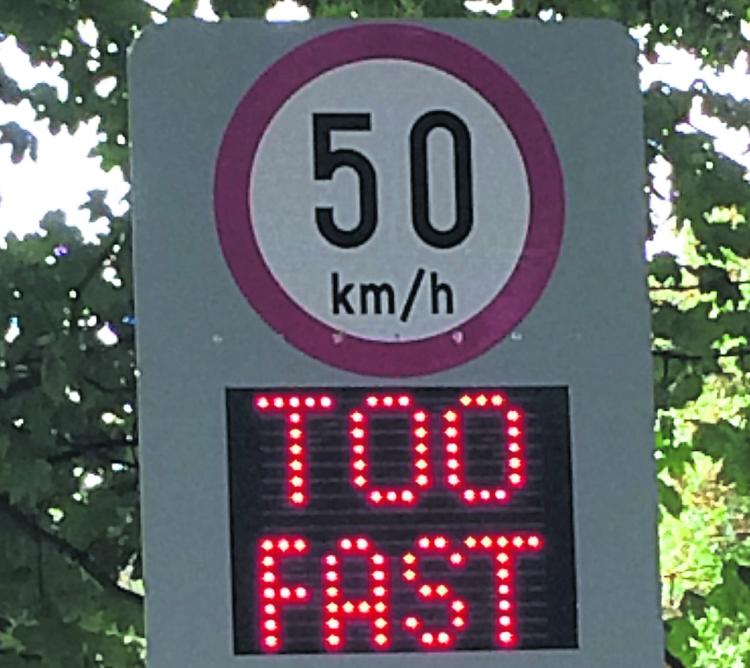
Deaths on the road are a heartbreak for families. It is non-discriminatory and visits every parish in this country.
The debate of how we should tackle it has again become the centre of conversation over recent times as fatalities in August were twice that for the August 2022 figure.
There was a national slow down day for 24 hours on Monday and Tuesday of this week, when 865 drivers were detected going above the various speed limits.
Each will receive a €160 fixed charge notice and three penalty points on their licence.
But that was probably the tip of the iceberg and there is no doubt that the mere presence of road traffic Gardai and speed vans on the highways and byways of the State prevented potential injury and even loss of life, on that particular day.

What got me wondering even more though was plans by the government (in response to the recent upsurge in road fatalities) to carry out a review of baseline speed limits that would likely see decreases in national secondary roads driving limits from 100km/h to 80km/h and again on those at 80km/h to 60km/h and so on.
The argument could be made that if people actually adhered to the current speed limits, there would not be any need to reduce them even further.
The current speed limits and road traffic legislation need to be more strongly implemented, in the first instance, is something that is also argued.
That is no reflection on gardai or others who are simply using the resources that are available to them.
And what I would also say is that a genuine consultation and engagement with the public of where speeding vans are located, also needs to be urgently addressed.
At the end of the day, you need to take the people with you, not feel, they are trying to take money out of their pockets, no matter how good intention, noble and life saving, the result may be.
It is said that speed vans or GoSafe are only located in areas where there have been fatalities or history of collisions/fatalities.
That may be the case, but that does not wash with many of the population.
From my own experience of these vans, they seem to be parked on the edges of urban areas, be they towns or villages, where there is a necessary decrease or increase of speed.
The optics appear, and I say optics with many in the general public, are that some are located in areas where it is more likely to see someone driving over the limit, than a location that is far more likely to see higher speeds on primary routes.
Bypasses created over the last 20 years should see a greater presence of speed enforcement, especially on weekends, where they are often used by individuals in both cars and motorbikes, to determine the lengths that they can break the speed limits in question.
On the other hand, do motor manufacturing companies play no role in this at all?
For a starter, no vehicle in this country should be calibrated to go above the 120km/h speed limit that applies to motorways, for example?
Has technology played no role to play in this at all? Or are we simply not looking outside the box for our solutions as we cannot have the road traffic corps or speed vans lurking behind every bush and corner in the county?

Can a speed limiter be required for younger drivers and along with this drive towards electric cars, can speeds not be reduced by linking technology in the car with speed reduction areas within towns and villages?
I do not have the answers, but when the old solutions do not appear to work in relation to any issue, let alone the need to reduce fatalities, we need fresh thinking as well.
I recall some years ago when you entered a county boundary, there was a big sign indicating the number of people killed on specific roads, in that county, over a specified time period.
They may not have solved the problem, but it was a stark reminder to people as they passed, on the fragility of life, when driving the same roads. Why did they disappear?
Michael McHugh's weekly column appears in the Donegal Democrat newspaper
Subscribe or register today to discover more from DonegalLive.ie
Buy the e-paper of the Donegal Democrat, Donegal People's Press, Donegal Post and Inish Times here for instant access to Donegal's premier news titles.
Keep up with the latest news from Donegal with our daily newsletter featuring the most important stories of the day delivered to your inbox every evening at 5pm.